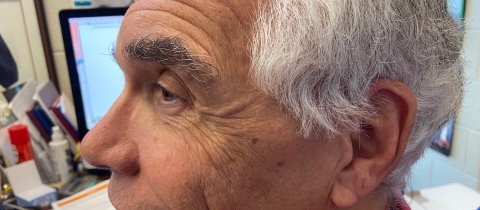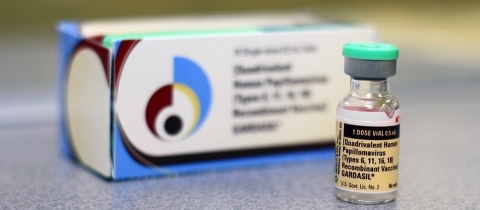The young lady had just returned from a fun-filled vacation at Club Med. The next day she was presented with a souvenir she didn't bargain for, a tender rash on both thighs. Off she went to the dermatologist who began to question her about recent activities which may have involved the anatomical area in question.
One of the social events at the vacation club encourages the juxtaposition of certain body parts by requiring participants to pass a lime from one to an other in a "lap to lap, thigh to thigh" fashion. This can result in a rash, as experienced by one young lady. The rash appeared exactly where the lime had contacted the skin on the thighs. What happened? The diagnosis was easy: phytophotodermatitis. In other words, a skin reaction caused by naturally occurring plant chemicals which become toxic only when activated by ultraviolet light. This is not an allergic reaction; in other words the immune system is not involved. Anyone exposed to a sensitizers and ultraviolet light can have a reaction. As was the case with our vacationer, the reaction disappears within a few days. Indeed, the young lady was quite thankful that she had only experienced a case which has since been referred to as "Club Med dermatitis." Some other "lap to lap" transmitted afflictions may not have been so easy to resolve.
Such phytotoxic reactions can actually be traced to furocoumarins, compounds found in limes, as well as in other citrus fruits, parsley, dill, parsnips and chrysanthemums. Indeed, these furocoumarins are well known to be the cause of "celery handlers' disease." This is a condition which sometimes afflicts produce handlers as well as cashiers and baggers in fruit and vegetable stores. The problem is usually seen from April to August, when the workers come off their shift and are exposed to sunlight. The worst rashes develop in people who have handled aging celery; furocoumarins are produced as the plant's cellular tissues decompose. But you don't have to work with vegetables to have a skirmish with furocoumarins. Many perfumes and colognes contain oil of bergamot which contains the sensitizer 5-methoxypsoralen. The so-called "sun-rash" that some ladies experience may be a phototoxic reaction to their perfume.
Want to engage with this content? Comment on this article on our Facebook Page!







